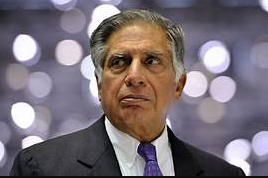Ratan Tata’s leadership transformed India’s Tata Group into a global powerhouse, leaving behind a legacy of innovation and compassion.
Ratan Tata, the former chairman of Tata Group who led the conglomerate to international prominence through a series of landmark acquisitions, has passed away at the age of 86, according to a statement from the Tata Group. Tata, who helmed the company for over 20 years, was instrumental in bringing the storied Indian conglomerate onto the global stage.
Tata’s death was met with an outpouring of tributes, including one from Indian Prime Minister Narendra Modi, who praised Tata as “a visionary business leader” and expressed deep sorrow at the loss. “Extremely pained by his passing away. My thoughts are with his family, friends, and admirers in this sad hour,” Modi shared on social media.
Ratan Tata’s journey began after he graduated with a degree in architecture from Cornell University. Returning to India in 1962, he started working within the Tata Group, founded by his great-grandfather over a century ago. His early years within the group saw him contribute to several companies, including Tata Motors Ltd and Tata Steel Ltd, where he played a key role in turning around struggling units like National Radio & Electronics Company.
In 1991, Ratan Tata took over as chairman of the Tata Group when his uncle, J.R.D. Tata, stepped down. This transition occurred as India embarked on a period of economic reforms, opening up its economy to global markets. Tata’s leadership during this time was crucial in navigating the company through the changing landscape.
Under Tata’s guidance, the Tata Group experienced significant growth. One of his key strategies was empowering younger leaders within the company and instituting a more structured leadership system. He also founded Tata Teleservices in 1996 and led the listing of Tata Consultancy Services, the group’s flagship IT firm, in 2004.
Tata’s forward-thinking approach saw the group expand its horizons beyond India, with a focus on acquisitions as a key growth strategy. This marked a pivotal shift for the traditionally conservative conglomerate. “We could grow by acquisitions which earlier we had never done,” Tata remarked in a 2013 interview with Stanford Graduate School of Business, highlighting the shift in his leadership philosophy.
Tata’s legacy extends beyond his business acumen. He was also known for his compassion, philanthropy, and dedication to ethical business practices, making him a beloved figure in India and abroad. His passing marks the end of an era for the Tata Group, which will continue to honor his vision and transformative leadership.

